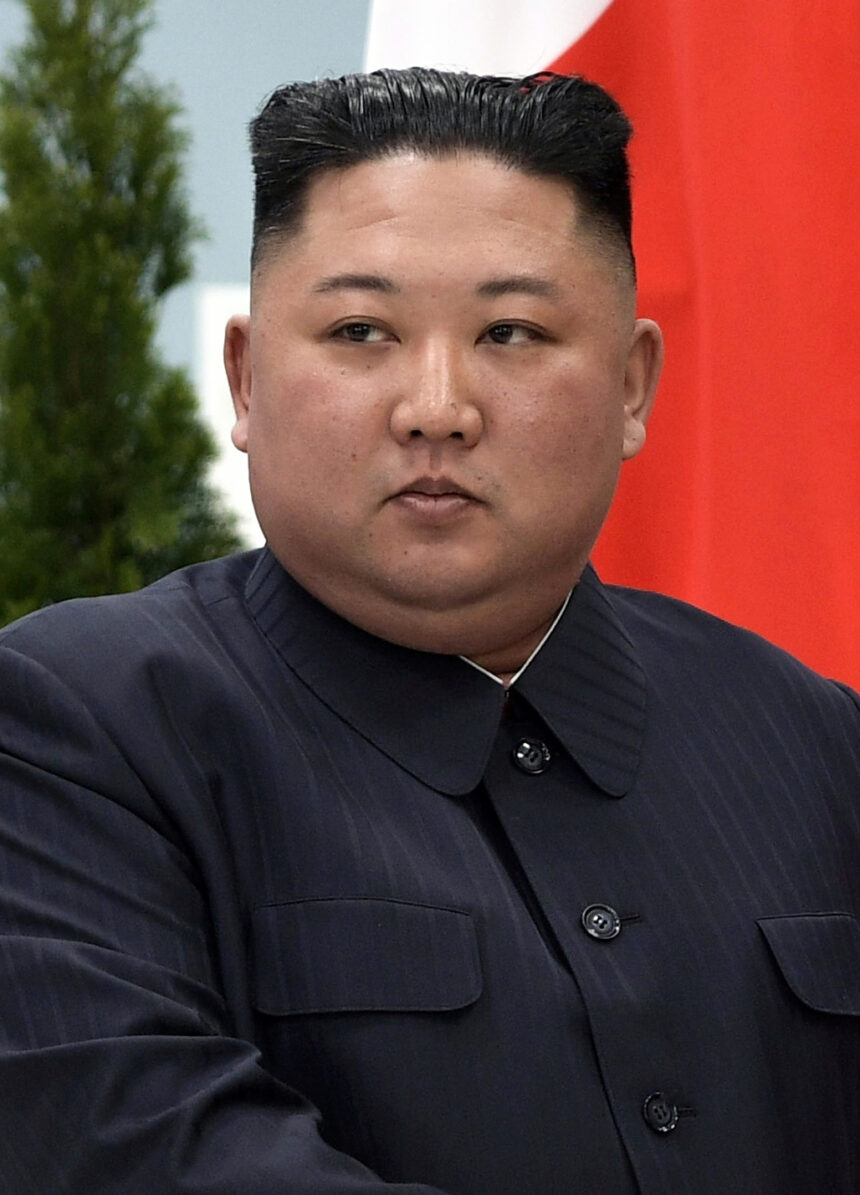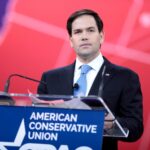North Korean leader Kim Jong Un has declared that the enhanced security partnership between the United States, South Korea, and Japan represents a significant threat to his nation. He has committed to further strengthening his nuclear weapons program, as reported by state media on Sunday.
While Kim has issued similar warnings in the past, his recent remarks suggest that he is unlikely to accept President Donald Trump’s invitation for dialogue and a revival of diplomatic relations in the near future.
During a speech commemorating the 77th anniversary of the Korean People’s Army on Saturday, Kim criticized the US-Japan-South Korea trilateral security alliance, which he described as a US initiative aimed at creating a NATO-like military bloc in the region. He asserted that this partnership is contributing to military instability on the Korean Peninsula and poses a serious challenge to the security of North Korea, according to the official Korean Central News Agency.
Kim also outlined new strategies for rapidly enhancing all forms of deterrence, including nuclear capabilities, reiterating his steadfast commitment to advancing North Korea’s nuclear forces, as reported by KCNA.
In light of stalled diplomatic efforts with the US and South Korea in recent years, Kim has concentrated on expanding and modernizing his nuclear arsenal. In response, the United States and South Korea have intensified their bilateral military exercises and trilateral training with Japan. North Korea has condemned these drills, characterizing them as preparations for an invasion.
Since his inauguration on January 20, Trump has expressed intentions to reconnect with Kim, highlighting the significance of their summit during his initial term.
In a joint press conference with Japanese Prime Minister Shigeru Ishiba on Friday, Trump stated, “We will establish relations with North Korea and with Kim Jong Un. As you are aware, I had a very good rapport with him. I believe I averted war.”
In a Fox News interview aired on January 23, Trump referred to Kim as an intelligent individual, not driven by religious extremism. When asked if he would reach out to Kim again, Trump affirmed, “I will, yes.” Trump engaged in three meetings with Kim between 2018 and 2019, aimed at addressing the cessation of North Korea’s nuclear program, marking the first direct summits between the leaders of the United States and North Korea. However, this high-stakes diplomatic effort ultimately faltered when Trump declined Kim’s proposal to dismantle his primary nuclear facility in exchange for significant sanctions relief.
North Korea has yet to respond directly to Trump’s recent overtures, continuing its weapons testing and maintaining hostile rhetoric towards the United States. Many analysts suggest that Kim is currently focused on deploying troops to Russia to assist in its military operations in Ukraine. They believe that Kim may eventually contemplate re-engaging in diplomacy with Trump if he assesses that he cannot sustain his strong collaboration with Russia following the conclusion of the war. In his speech on Saturday, Kim reiterated North Korea’s unwavering support for the Russian military and its people in their efforts to safeguard their sovereignty, security, and territorial integrity. He accused the United States of fueling the conflict that has exacerbated the situation in Ukraine.
In South Korea, there are concerns that Trump may forsake the international community’s enduring objective of achieving full denuclearization of North Korea in pursuit of a diplomatic success. However, a joint statement released following the summit between Trump and Ishiba emphasized that both leaders reiterated their steadfast commitment to the complete denuclearization of the DPRK, which stands for the Democratic People’s Republic of Korea. The statement further highlighted the significance of the trilateral partnership among the United States, Japan, and South Korea in addressing the North Korean issue.






